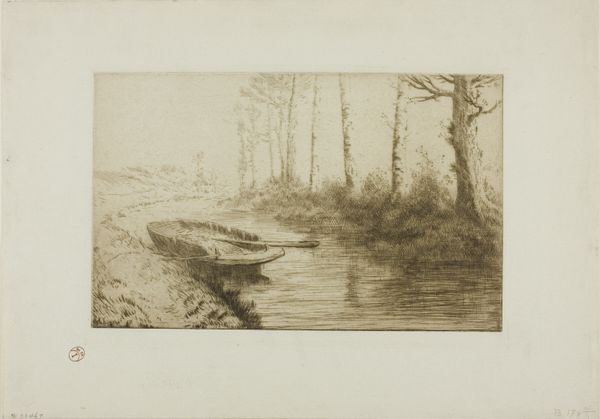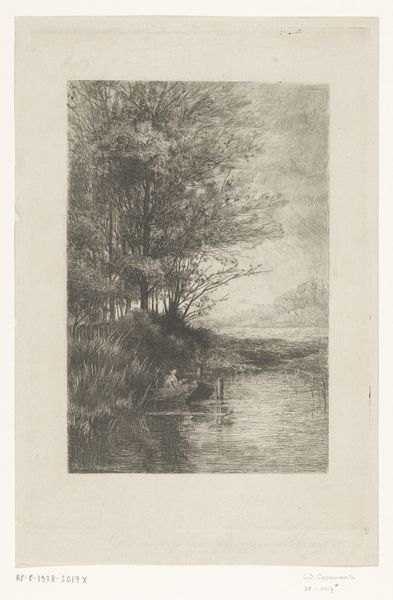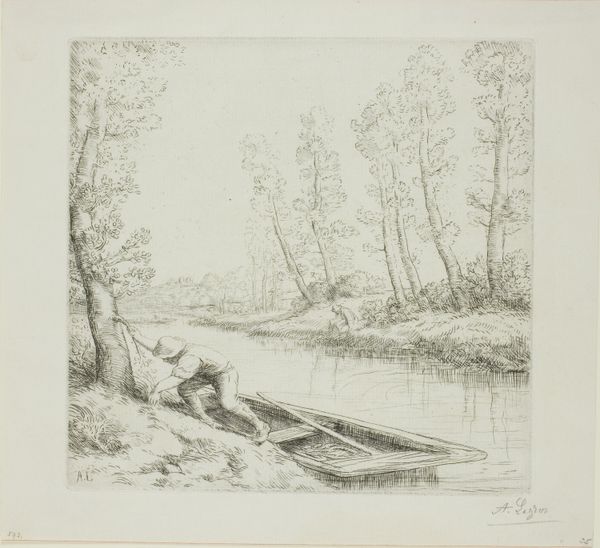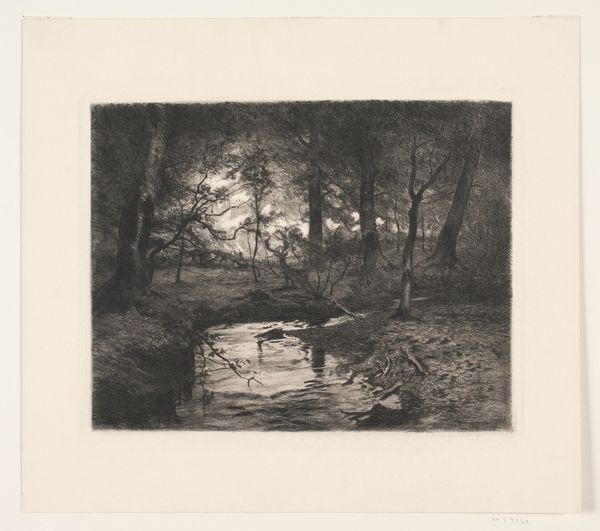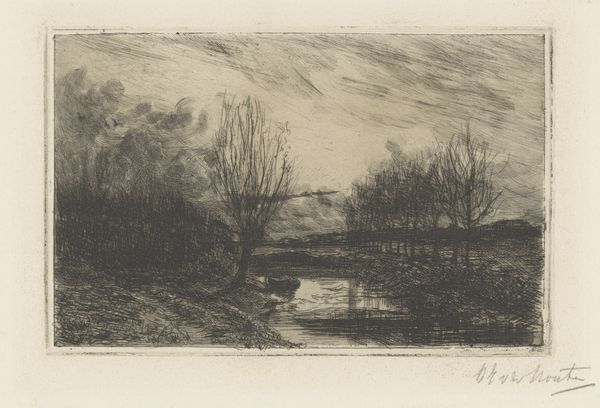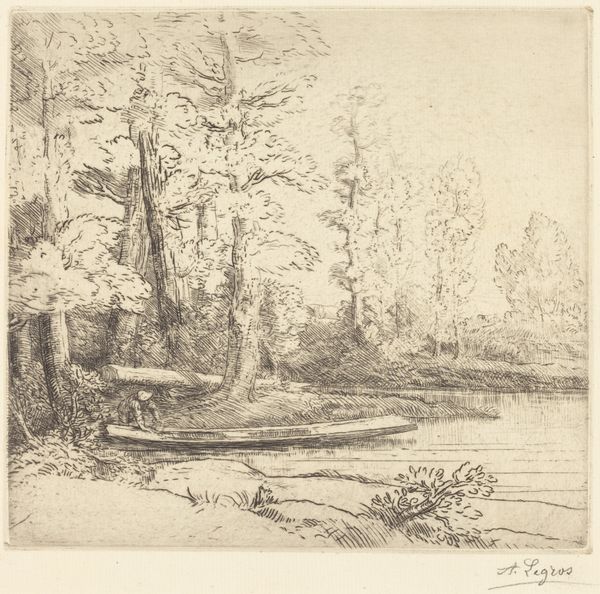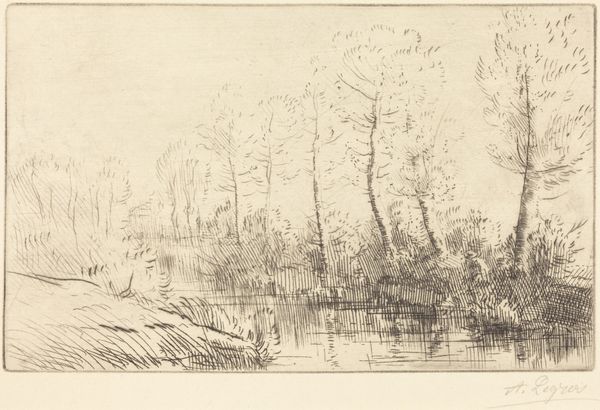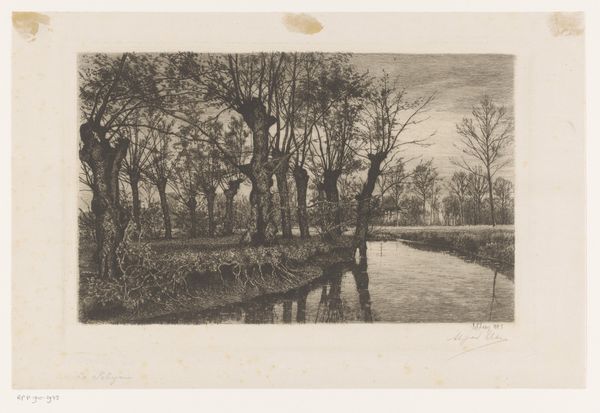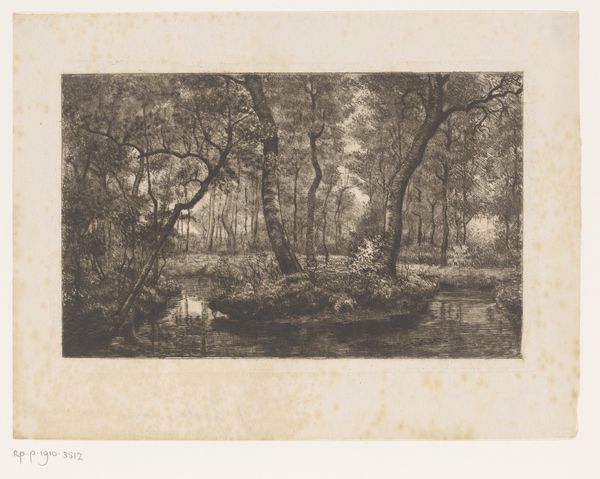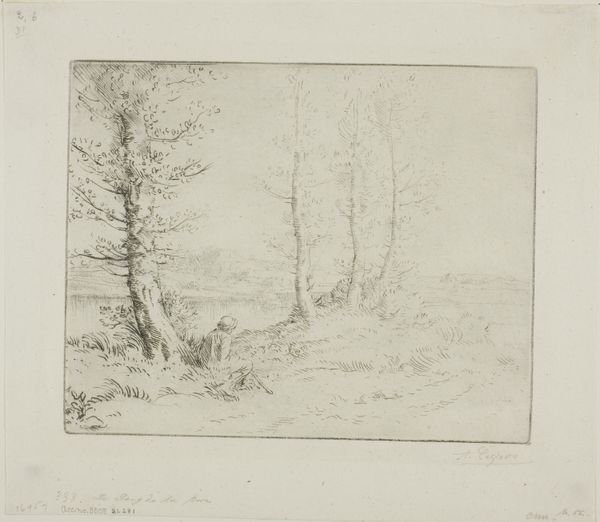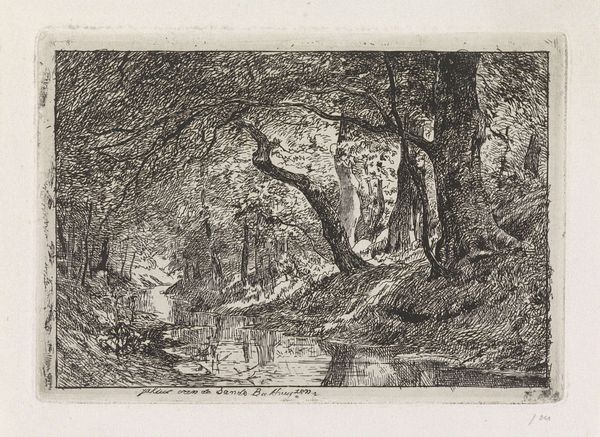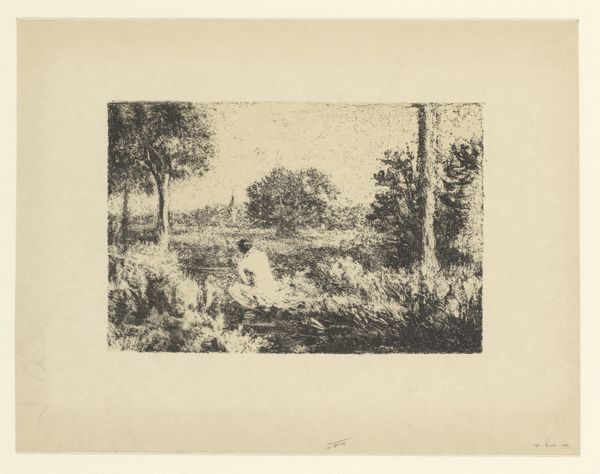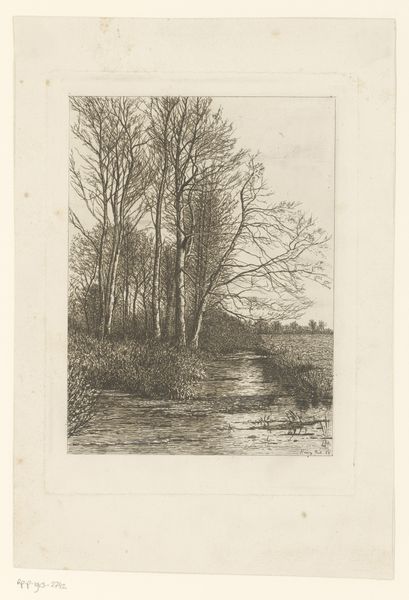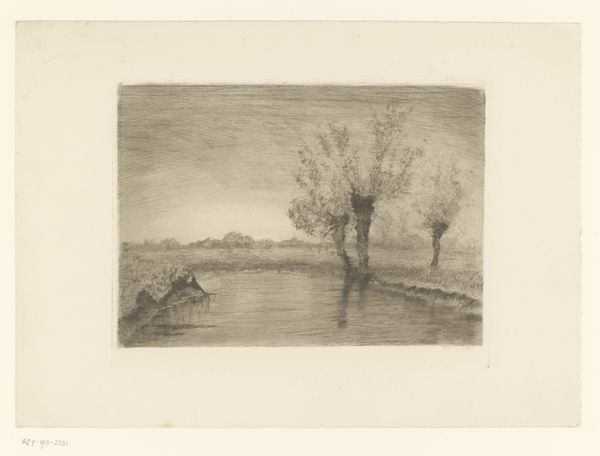
drawing, print, etching, paper
#
drawing
#
light pencil work
#
ink paper printed
# print
#
etching
#
pencil sketch
#
charcoal drawing
#
possibly oil pastel
#
paper
#
underpainting
#
france
#
watercolour bleed
#
watercolour illustration
#
tonal art
#
watercolor
Dimensions: 170 × 256 mm (plate); 248 × 368 mm (sheet)
Copyright: Public Domain
Editor: So, this is Alphonse Legros' "The Canal: Morning," made around 1877. It's an etching, printed on paper, and it has such a delicate, almost wistful quality to it. What strikes you about this piece? Curator: I'm immediately drawn to the etching process itself. Legros was deeply engaged with printmaking as a democratic art form, wasn't he? How do you think the labor involved in creating an etching – the physical act of scratching into the metal, the application of acid, the inking and printing – informs the image itself? Editor: That’s an interesting point. I hadn’t considered the sheer labor that goes into it. Curator: Exactly! Think about the social context too. Etchings were more accessible to a wider audience compared to paintings. Did Legros see this as a way to depict scenes of everyday life, the working landscape, and offer them to people outside the traditional art market? Look at the textures. Consider the effect he's getting; light filtered through early industrial landscapes or everyday labour conditions. Editor: It’s much more nuanced than just a pretty landscape then! The act of creating and distributing it… Curator: Precisely. How the means of production – the etching technique itself and the conditions in which this etching would have been available, change how it's read in relation to how landscape painting was normally presented at that time. Do you see an idealized rural setting or a commentary on the impact on industrial practices? Editor: I now view the image as far more complex. Understanding the accessibility that comes with etching changes my view on its reception in relation to the traditional art form. Curator: That's the core of a materialist reading: interrogating the process and the socio-economic factors intertwined with its making and distribution. Editor: Absolutely! Seeing it as more than just a landscape but an act of democratizing art changes everything for me.
Comments
No comments
Be the first to comment and join the conversation on the ultimate creative platform.
